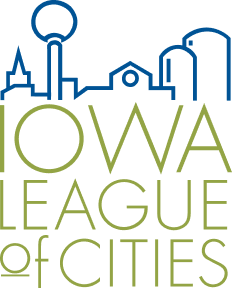The city council is the policy arm of the municipal government and is responsible for determining the direction of the city. The council performs this role by adopting legislation, approving plans and programs, and establishing city policies. But the city council can only exercise its powers when acting as a group in an official meeting and a majority vote is needed to accomplish anything. Council decision-making is, therefore, a group activity and as such requires a team approach to be effective. The team concept has many important benefits in achieving council effectiveness:
- Blending individual talents can produce better problem-solving and enhance the quality and quantity of results.
- The scope and magnitude of the issues and tasks confronting the city are complex and greater than any one person can handle.
- A team approach can focus the energy of the group on critical issues and maximize benefits within the constraints of limited resources and time.
- The team concept can yield more productive meetings and enhance communications between the team members.
Teamwork has been defined as an organization functioning effectively as a group. Here are a few methods by which city councils can become effective teams.
Mutual Respect
Show respect to all team members at all times. Recognize the value and importance of individual contributions. Trust each other’s abilities and listen carefully to what is being said. Put aside personal differences and consider without prejudice the particular issue or situation. Remember, city staff is also an important part of the team and should be treated respectfully. Staff members are valuable assets and essential to accomplish the council’s goals.
City Council Goal-Setting
By establishing a shared sense of direction and determining goals and priorities, the city council as a team identifies what it wants to accomplish within a specific time period. Council goal-setting provides a clear message as to what the council wants to accomplish as a group, as well as to the staff, other governmental jurisdictions and the public. It also provides valuable direction for developing the annual budget and capital improvements program, allocating staff resources, evaluating performance and other important city functions.
Clear Roles and Responsibilities
A major impediment to effective teamwork can be role confusion or conflicts among team members as to the appropriate roles and expectations of various team members. It is, therefore, essential that the roles and responsibilities of the team members are well understood by all. The team, including elected officials and key staff members, should periodically review and discuss the various roles and responsibilities of all the team members. It is especially important that roles and responsibilities are clearly defined and understood when new members become part of the team.
Rules of the Game
Developing and agreeing to rules can help policy leaders work together and avoid unnecessary conflict. For those cities that have previously developed council rules of procedure, those policies should be reviewed and discussed with the team. Compliance with these rules should become a routine part of council operations – not just reserved for “special occasions” when a particularly contentious issue is on the agenda. Some important areas that should be part of council rules of conduct are:
- Insistence on civility
- Meeting management practices and roles
- Setting the agenda
- Parliamentary rules of order
- Use of consent calendar
- Use of work sessions
- Conflicts-of-interest
- Confidentiality
- Guidelines for representing the council
- Guidelines for citizen input
Processes and Methods
Governance and teamwork are achieved through processes. It is important for all team members to understand those processes, to respect them and to improve them when necessary. Policy leadership requires the capacity to effectively use the processes that support the team’s efforts and achieve the desired outcomes. Some key city processes include:
- Agenda development
- Information flow
- Program, project and financial monitoring and reporting
- Complaint handling
- Making requests of and giving directions to staff members
- Goal and policy implementation review
- Personnel policies and performance reviews
- Boards and commissions – contact and information
- Intergovernmental relations
Agree on the Decision-Making Process
For difficult, complex, or controversial issues, work together to agree on the process the council will use for decision-making. Frame the issue and determine what information is needed for the council to make an informed decision. Determine the process for citizen input. Give yourself adequate time to make a decision. Consider alternative actions, including the “do nothing” option. Work toward consensus and try to find areas of commonality. Recognize the need for compromise and the importance of reaching an agreement. Most importantly, respect the process and support the decision unanimously regardless of your own views.
Council Orientation
An effective and timely orientation program can help provide newly elected officials with the kind of information they need to be knowledgeable and effective members of the team. Items to include in the orientation are city organizational structure, review of significant city issues, goals and priorities, major city projects and initiatives, finance and budget, complaint process, council meeting processes and procedures, providing important city documents, and a tour of city facilities. All members of the team should take advantage of additional training opportunities through the Iowa League of Cities, regional leagues, councils of governments, etc.
Please visit the newly elected officials page to see more information on city council orientation programs.
Personal Attributes
Every team member should commit to striving to achieve the following attributes:
- Mutual respect and trustCivilityAbility to de-personalize issues or conflictAbility to see the other side of the issueValuing differencesFlexibilityProfessionalism
- Bear in mind the admonition of the late Tim Shields, former long-time Director of the Institute of Public Affairs: ”It takes an “I” to get elected, but it requires a ‘we’ to govern and lead.”
- Information provided by Jeff Schott, Former Program Director for the Institute of Public Affairs at the University of Iowa.






